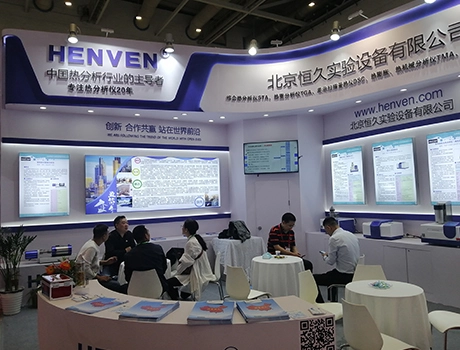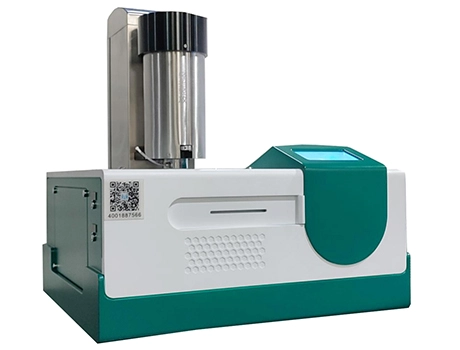Based on the significance of food in nutrition and physiology as well as its role in functional development, carbohydrates, proteins, and fats are the most important food components. Heat is one of the primary control factors used in food processing, and thermal analysis instruments can characterize these processes (such as melting, crystallization, polymorphic transitions, etc.). They can also measure other physical and chemical changes using temperature programs, optimize food processing techniques, facilitate component analysis, and meet the scientific requirements for food storage. This article will detail the study of the thermal analysis of food in the fats and oils food industry using a differential scanning calorimetry machine (DSC).
The crystallization behavior of fats is extremely sensitive to composition, which can be measured using a differential scanning calorimetry machine. The DSC curves of fat samples can be used as "fingerprint peaks" to identify specific types of fats. The different crystallization behaviors of various vegetable oils are due to the ratio of saturated and unsaturated fatty acids in triglycerides. Triglycerides of saturated fatty acids crystallize at relatively high temperatures, while those of unsaturated fatty acids crystallize at lower temperatures.
Chemically, olive oil contains 70% unsaturated fatty acid triglycerides; palm oil has a high percentage of saturated fatty acids; soybean oil, in addition to saturated and unsaturated fatty acids, contains some parts of highly unsaturated fatty acids, showing a crystallization peak around -87°C; rapeseed oil contains only 5% saturated fatty acids, presenting a weak exothermic peak between -20°C to -40°C.
Unprocessed vegetable crude oil is usually not suitable for direct consumption and needs to be cleaned and refined to remove large amounts of harmful substances. Further processing (such as hardening, hydrogenation) is needed to attain the desired properties, typically reducing the content of unsaturated fatty acids and increasing the crystallization temperature of the oil. Therefore, DSC curves obtained using a differential scanning calorimetry machine can be used to identify unknown natural and refined oils, monitor the refining process, and ensure the quality of fats and oils.
For consumers, it is very important to know whether edible oil can be used for specific purposes: whether it can be used for frying or just as salad oil at normal temperatures, and whether some beneficial active components will be lost at higher temperatures. For example, above approximately 180°C, phenolic antioxidants and tocopherol group (Vitamin E) in olive oil will decompose.
Oxidative stability is an important indicator in assessing the shelf life and quality of products. Differential scanning calorimetry machines can measure the oxidation onset temperature (OOT) or oxidative induction time (OIT) to characterize the oxidative stability of fat products. Typically, the OOT of palm oil is significantly higher than that of soybean oil, but both have OOT above 150°C, making them suitable for frying foods. Additionally, OOT can distinguish between used and fresh edible oils.
Studying the thermal analysis of food in fat products using a differential scanning calorimetry machine can clearly reflect the melting and crystallization behavior of fats, quickly assess the oxidative stability of fats, and calculate component content, providing the best solutions for the processing, component analysis, and storage of fat products.
High Precision
Henven's differential scanning calorimetry machine offers good repeatability and high accuracy, particularly suitable for precise measurement of specific heat.
Independently Developed
Henven's differential scanning calorimetry machine uses an independently developed constant temperature controller, constant temperature gas chromatography-mass spectrometry joint, and constant temperature zone.
Reduced Interference
Henven's differential scanning calorimetry machine integrates with the furnace temperature control unit, effectively reducing signal loss and interference.
Self-Calibration Temperature
Henven's differential scanning calorimetry machine comes with standard materials, allowing users to self-calibrate the temperature range, thus reducing instrument errors.
Intelligent
Henven's differential scanning calorimetry machine software is intelligently designed, with a fully automatic plotter capable of processing multiple data such as enthalpy calculation, glass transition temperature, oxidative induction period, melting point of crystalline materials, etc.
Additionally, as one of the professional differential scanning calorimetry suppliers, Henven's differential scanning calorimetry machine can automatically generate test reports and oxidative induction periods. These advanced features ensure the precision and accuracy of the differential scanning calorimetry machine measurements, making it an indispensable thermal analysis instrument in both scientific and industrial applications.
This is the last one.

